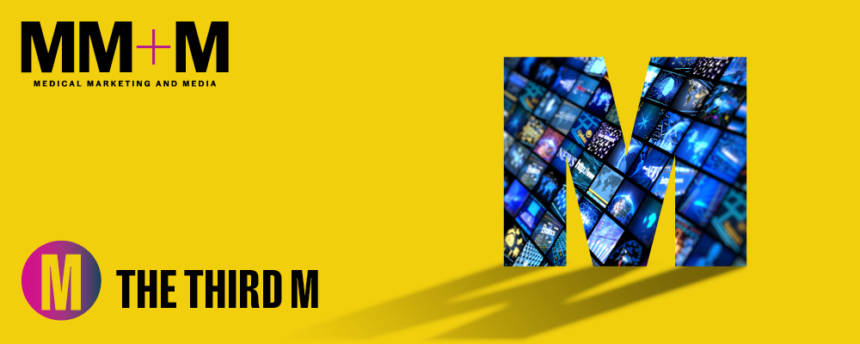A group of A-list health and media execs have teamed to launch the Able Channel, a streaming service focused on health- and wellness-related content. The channel, to be available on Apple TV and Roku devices and across iOS and Android platforms, will formally debut early next year.
It’s the brainchild of co-founder and CEO Brian McCourt, who previously spearheaded the creation of internal content networks for Novartis and Disney. McCourt’s interest in the health space, however, is deeply personal in nature.
Shortly after birth, his son was diagnosed with autism spectrum disorder. Years later, his mother was diagnosed with Alzheimer’s disease and his best friend received a terminal cancer diagnosis.
“Each time I was overwhelmed, like almost anyone who hears that kind of news would be, and each time I tried to learn as much as I could,” McCourt recalled.
Another episode convinced him of the need for more – and more widely distributed – health information. During a phone call, one of McCourt’s business partners suddenly became unintelligible. Based on a TV show he had recently watched, McCourt recognized the symptoms of a stroke. He called the police and his friend survived the episode.
“What are the odds, right?” he said.
McCourt doesn’t believe, however, that most existing health and wellness content appeals to would-be viewers – of which, he noted, there are many. He references a statistic from the National Health Council that 150 million Americans have a disability or a chronic health condition. “And the other 150 million Americans are loved ones and caregivers who are taking care of them and trying to stay well themselves,” he added.
The Able Channel’s content mix has been designed to fill that information void, one that McCourt can’t believe still exists at a time when healthcare represents some 18% of the U.S. gross domestic product.
“That, to me, represents a huge gap in the marketplace,” he said.
The channel plans to come at it from a different angle, one grounded in storytelling and empathy. A good example is “Surviving Suicide,” a series produced with the Cleveland Clinic that details efforts by individuals who survived suicide attempts to help others. A free early preview will start rolling out on Wednesday November 11.
Other programming includes “Together We Are Able,” designed to highlight the stories of people living with disabilities; “Good Health Minutes,” which shares daily bits of health news; and “Special Diets Kitchen,” a cooking show filtered through the lens of nutrition. McCourt touts the latter as particularly emblematic of the Able Channel’s approach. “There’s a clinical element to it alongside the entertainment value,” he explained.
As the Able Channel grows, so too should opportunities for marketing partners. For “Special Diets Kitchen,” it’s not hard to imagine, say, makers of kitchen products seeking to be a part of the mix alongside wellness and pharma brands. The company is actively seeking out partners, with Ochsner Lafayette already on board as its first hospital system channel partner.
McCourt notes that organizations like Ochsner can choose to have channels of their own under the Able umbrella. “It helps us scale the business and it helps them reach the audience,” he explained.
Able will derive support both from ads and subscriptions, and already has the backing of a broad range of people and organizations. Investors include StartUp Health, Callais Capital Management and the Andre Agassi Foundation for Education, while former Cleveland Clinic chief Dr. Toby Cosgrove, former Time-Warner chairman Jerry Levin and former UNLV School of Medicine chief of staff Maureen Schafer sit on the channel’s board of directors.
All of this begs the question, of course, of why nobody has attempted to create a similar network before this. “It hasn’t happened before because the technology has only now caught up to the opportunity,” McCourt responded. “Streaming presents an interesting proposition, because you can narrowcast content to the people who need it most.”
To that end, it’s clear that Able’s ambitions are far from modest. “We see ourselves as the umbilical cord, if you will, to content that’s going to inform your life and your health,” McCourt continued. “We’re going to make the world healthier, one story at a time.”







